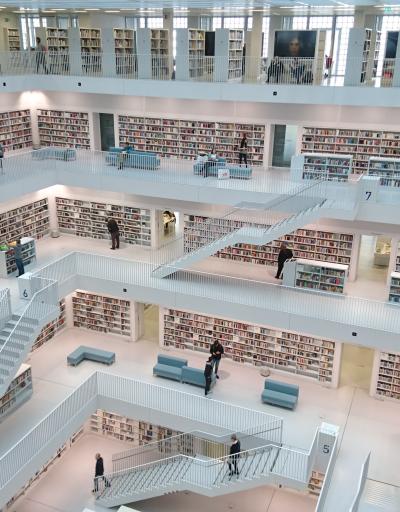
Shutterstock
Culture power plants (usinas culturales)

Where
Uruguay
Uruguay
When
2016
2016
Who
National directorate of culture. ministry of education and culture
National directorate of culture. ministry of education and culture
Read the full report
Go to full report
Go to full report
Description of the policy/measure
The following experiences may serve as examples to highlight the work carried out as part of the programme:the paysandu culture power plant is located at the local prison. it developed two particular products, which generated repercussions thanks to their participation in a number of audiovisual exhibitions across the country: "9 deseos" (short film) and "sueno" (videoclip).the atlantidoc 2014 festival showed "9 deseos" and a brief documentary about the realisation of another short film, "cosas que sonar". in june 2014, "9 deseos" was also shown at the third international film and human rights festival, "tenemos que ver", whereas "9 deseos" and "sueno" were part of a film series jointly organised by the spanish cultural centre and the uruguayan institute of film and audiovisual arts (icau). in this case, the showing of both films was followed by a debate about artistic expression in the context of social vulnerability.following an agreement with the association of friends of the casa de la cultura afrouruguaya (afro-uruguayan culture centre), a culture power plant opened in the palermo neighbourhood of montevideo in september 2014. this is the first such centre inaugurated by the dnc following an agreement with the uruguayan african community. funding of the plant included, among others, funds provided by the aecid programme for inclusive cultural policies and scientific communication.in november 2014 a culture power plant was inaugurated at the vilardebo psychiatric hospital as part of an agreement between the dnc and the department of mental health and vulnerable groups of uruguay´s public health service asse. although work is still in its initial stages, the hospital´s group on music appreciation contributed an example of the plant´s production during the international music day celebrations.
2005 Convention Monitoring Framework Goal(s)
Area(s) of Monitoring
Cultural Domain(s)
Results achieved
Granting ongoing access to cultural production, so as to encourage people´s personal empowerment and integration. continuous promotion of socialisation and full cultural citizenship. strengthening of the process of decentralised access to cultural production through the installation of the appropriate infrastructure. further broadening of access opportunities for the creative use of new communication and culture-related technologies.continuous promotion of social inclusion based on the participation of vulnerable teenagers and young people in arts and culture.
Financial resources allocated to the policy
Annual budget: $63,500 dollars


